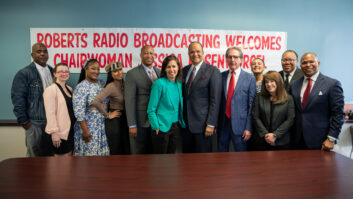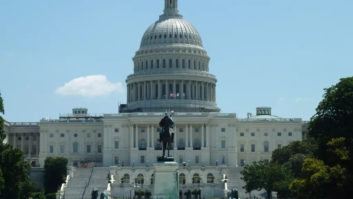Two members of Congress are expressing concerns about a proposal that would allow geo-targeting on FM. They’re asking the FCC to “carefully assess” their reservations before potentially amending the rules.
On July 6, Congressional Representatives Yvette Diane Clarke (D-NY) and Darren Soto (D-FL) sent a letter to Federal Communication Commission Chairwoman Jessica Rosenworcel to say they are “deeply concerned” about the potential harms this technology may have on communities of color.
According to the two, the commission should not allow geo-targeting technology to be used as a tool for advertising redlining that will enable users to cherry-pick only the most affluent listening audiences in a station’s market. The proposal by GeoBroadcast Solutions would allow FM stations to use a few minutes of each broadcast hour to air unique, targeted programming on booster signals.
“The proposal before the commission is cleverly marketed as a tool to serve Black and Brown communities, when in fact it can be used for just the opposite — to avoid serving those communities,” the two said in the letter. “Any potential benefit must be weighed against this significant risk for harm.”
A GBS spokesman pointed out that in late 2020 Clarke had expressed support for the proposal, saying it could potentially help minority-owned stations better serve their communities.
Now, however, Clarke and Soto expressed their unease about any technology that could potentially degrade free, over-the-air radio by introducing harmful interference.
[Related: “ZoneCasting Generates More Contention“]
The record of this proceeding reveals significant qualms among broadcasters that the testing to date has not been sufficient, and that interference concerns have not been addressed sufficiently, they said. “We want your assurance that the commission will not allow geo-targeting technology or FM boosters to degrade or interfere with the public’s access to essential broadcast radio services,” the letter read.
Specifically, Clarke and Soto asked Rosenworcel and the commission to answer several questions. The two are seeking assurance that geo-targeting technology will not cause the same harms that are sometimes seen with targeted, online advertising, in which communities of color, low-income and immigrant communities are often disproportionately isolated from key housing, education and economic opportunities online.
[Related: “10 Reps Write to Rosenworcel on Geo-Targeting“]
Clarke and Soto also asked the commission to clarify how it plans to test the level of interference geo-targeting could cause. They also want to know what real-world listener impact studies have been done, and to explain to what extent geo-targeting technology might interfere with the delivery of critical public safety information such as weather or emergency broadcasting services.
“We urge the commission to carefully assess these issues as it considers the changes to its rules for FM booster stations.”
The letter follows a missive submitted in June by 10 congressional Democrats who were in favor of allowing geo-targeting on FM, saying the opposite — that the technology could provide benefits to minorities.











